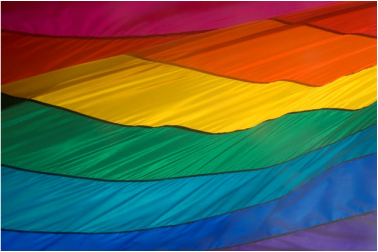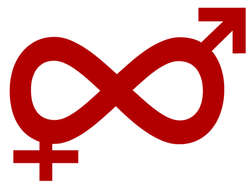
 Friday 17 May is International Day Against Homophobia and Transphobia (IDAHO). The following video from the United Nations (UN) Human Rights Office outlines some of the difficulties that lesbian, gay, bisexual and transgender (LGBT) persons across the globe face on a daily basis: A clear message from the above video is that LGBT rights are human rights. In South Africa we have a progressive constitution in which LGBT rights are protected by law. The following table (courtesy of Wikipedia) outlines lesbian, gay and bisexual rights in South Africa: The following pamphlet (courtesy of Gender DynamiX) discusses the South African legistlation that allows transgender and gender non-conforming people in South Africa to change their gender and name on their ID documents without undergoing sexual re-assignment surgery: However, despite this progressive legislation many LGBTI persons in South Africa still face discrimination, hate speech and hate crimes. In other words many LGBTI people are still not free or equal. The 17th of May is a day to sit with what this means and to take action. On Friday, various South African NGOs will be uniting to fight homophobia and transphobia - click here for their press release and programme.
0 Comments
 Do you find it awkward talking about sex? Does this mean you do not talk about sex with your partner, children, friends, doctor or community? What are the implications of not talking about sex? In the following TEDx Talk Debbie Herbenick shares useful personal examples of the dangers of not talking about sex. She also mentions how not talking about sex can impact on:
After watching this video you may feel quite different about what that awkwardness may cost you and the people around you. Herbenick challenges everyone to make sex normal and provides practical ways in which you can make sex normal.  What is intersex? Are 'male' and 'female' the only sexes? What defines sex: genitals, hormones, chromosomes, something else? Can you be intersex without knowing it? Is the surgical alteration of ambiguous genitalia in infancy a form genital mutilation? What is it like to be a parent of an intersex child in a gender-binary focussed society? What are some of the experiences of intersex persons? The existence of multiple sexes has great implication for the way we conceptualise sex and gender as well as for the lived everyday experiences of 'sexed' persons. The following BBC documentary explores some of the above questions: |
Jonathan's BlogI use this blog to post links to articles and videos that may relate to some of my services or interests. This content may also be useful for potential clients as well as other people interested in psychology and self development. Archives
July 2021
Categories
All
|



 RSS Feed
RSS Feed